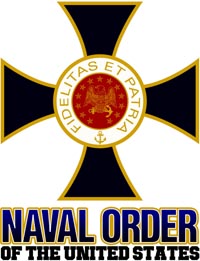News & Tall Tales. 1800s.

Lawyers and Lawbooks

Lawyers aplenty made their way to early California and seldom has sheer technicality unleavened by common sense been carried further than in the early California courts. Even in the most law-ridden times elsewhere a certain check was exercised by public opinion or the presence of business interests. But here was as yet no public opinion; and business interests, their energies fully taxed by the necessities of a new country, were willing to pay heavily to be let alone. Consequently, lawyers were permitted to play out their fascinating game to their hearts' content, and totally without reference to expedience or to the justice of the case. The battles were indeed intensely technical and shadowy. Points with points were fought bitterly.
Often for days the real case at issue was forgotten . . . One man killed another, on a public street, before many witnesses. The indictment was, however, thrown out and he released because it stated only that the victim was killed by a pistol, and failed to specify that his death was due to the discharge of said pistol. The lawyer who evolved this brilliant idea was greatly admired and warmly congratulated."
From The Gray Dawn, Stuart Edward White
As has been previously pointed out, nowhere before nor since has pure legality been made such a fetish. It was a game played by lawyers, not an attempt to get justice done. Sine, in all criminal cases at least, the prosecution was carried on by one man and his associates, poorly paid and hence of mediocre ability, and the defence conducted by the keenest brains in the professions, it followed that convictions were rare. Homicide in various forms was little frowned upon. Duels were of frequent occurrence, and, in several instances, regular excursions, with tickets, were organized to see them.
Street shootings of a more informal nature were too numerous to count. Invariably an attempt, generally successful, was made to arrest the homicide. If he had money, he hired the best lawyers, and rested secure. If he had no money, he disappeared for a time. Almost everybody had enough money, or enough friends with money, to adopt the former course. Of 1,200 murders -- or "killings" -- committed in the San Francisco of those days, there was just one legal conviction!
It was a point of professional pride with a lawyer to get his client free. Indeed, to fail would be the equivalent to losing a very easy game. The whole battery of technical delays, demurrers, etc., was at his command; a much larger battery than even the absurd criminal courts of our present day can muster. Delays to allow the dispersal of witnesses were easily arranged for, as were changes of venue to courts either prejudiced in favor of the strict interpretation of "law" or frankly venal. Of shadier expedients, such as packing juries, there seemed no end.

Breach of Promise, 1895
Walter Dendy Sadler.Your honourable, high-minded lawyers which means the well-dressed and prosperous had nothing to do with such dirty work; that is, directly. There were plenty of lawyers not so honourable and high minded called in as "counsel." These little lawyers, shoulder strikers, bribe givers and takers, were held in good-humoured contempt by the legal stars -- who employed them! Actual dishonesty was diluted through a number of men. Packing a jury was a fine art. Initially was needed connivance at the sheriff's office. Hence lawyers, as a class, were in politics. Neither the steller lawyer nor the sheriff knew any of the details of the transaction. A sum of money went to the former's "counsel" as expenses, and emerged, considerably diminished, in the sheriff's office as "perquisites." It had gone from the counsel to somebody like Mex Ryan, from him to various plug-uglies, ward heelers, shoulder strikers, from them to one or another of the professional jurymen, and then on the upward curve through teh sheriff's underlings who made out the jury lists to Webb himself. The thing was done.
It this tortuous way many influences were needed. The most honest lawyer's limit as to the queer things he would do depended on his individual conscience. It is extraordinary what long training and the moral support of a whole profession will do toward educating a conscience. Do not despite unduly the lawyers of that day. We have all of us good friends in the legal profession who will defend in court a criminal they know to be guilty as charged. They will urge that no man should go undefended; and will argue themselves into a belief that in such a case "defence" means not merely fair play, but a desperate effort to get him off anyhow -- trained conscience. If such sophistries are sincerely believed by honest men nowadays, it cannot be wondered at that queerer sophistries passed current in a community not five years old. It was difficult to draw the line between teh men who mistakenly believed themselves honest and those who knew themselves dishonest.From The Gray Dawn, Stuart Edward White
|
September 3, 1853, Daily Alta California, San Francisco Law Books!received by |
|
Archibold's Civil Pleadings
|

The Naval Order of the United States has a history dating from 1890. Membership includes a wide range of individuals, many with highly distinguished career paths.
The San Francisco Commandery meets the first Monday of each month at the San Francisco Italian Athletic Club in San Francisco, California and holds two formal dinners each year.







 Copyright ~ 1998-2018.
Copyright ~ 1998-2018. 